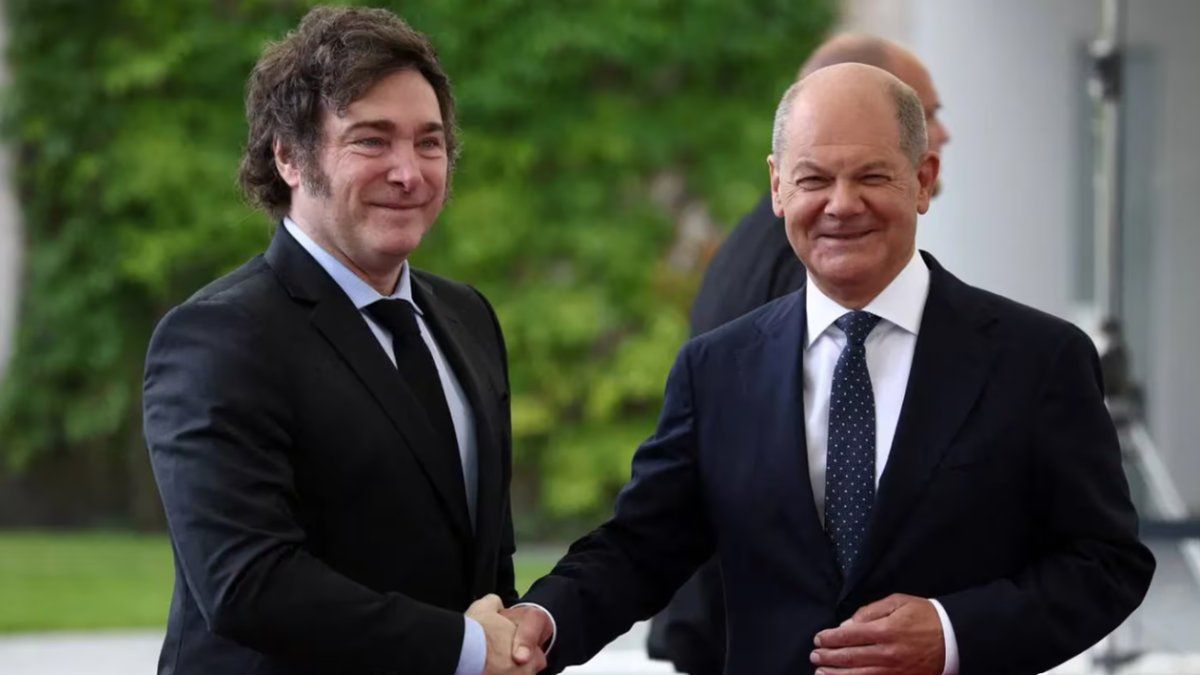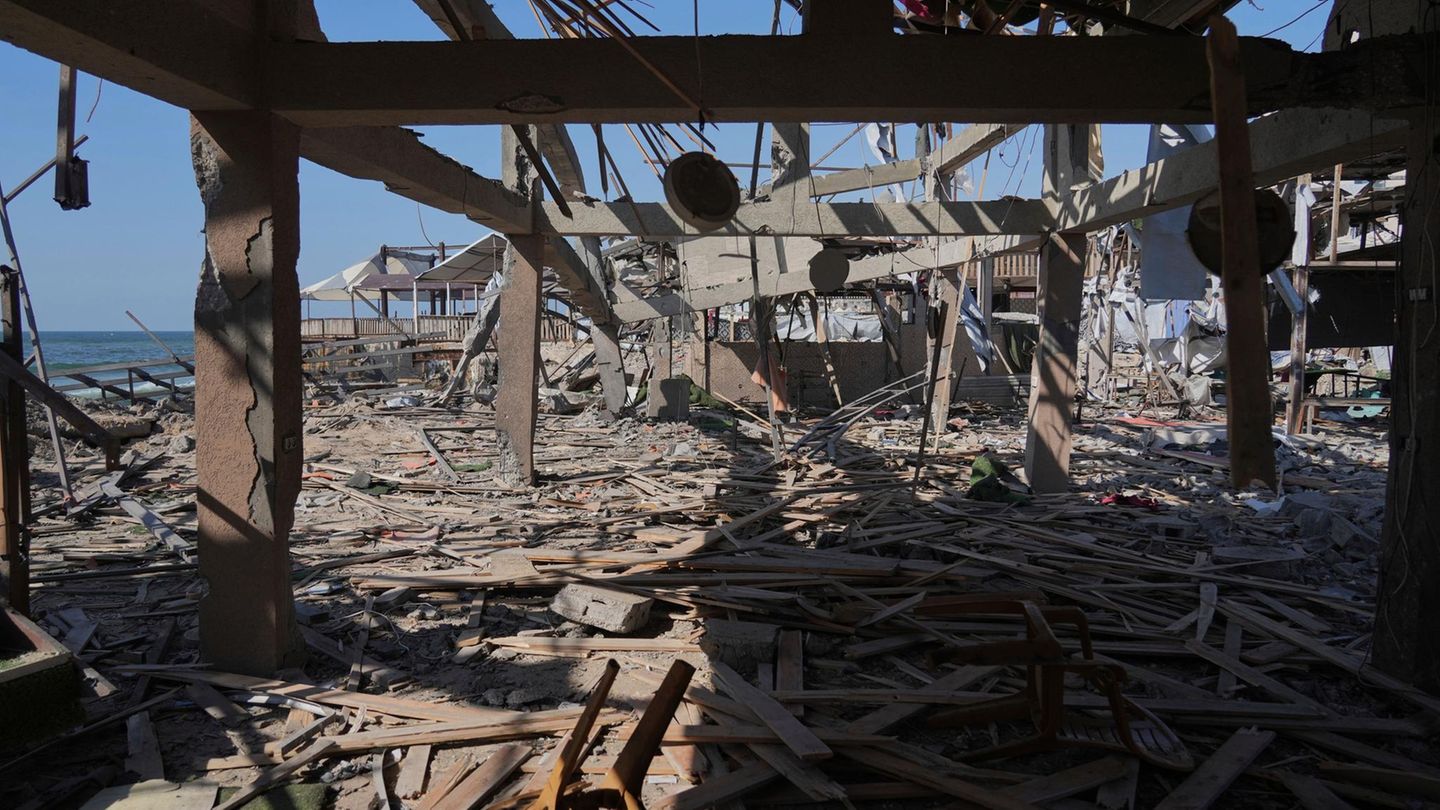The meeting between the Argentine president, Javier Milei and the head of the German government, Olaf Scholz ended in a wink to accelerate the agreement between the Mercosur and the European Unionin the midst of a political crisis that is plaguing France.
This Sunday the Argentine president met with his German counterpart at the Foreign Ministry in Berlin. After the meeting, there was no press conference, as announced on Friday by the German executive, who presented the appointment as a “very brief” working visit and said that the reduced format was due to the wishes of the Argentine government.
However, the government of Europe’s leading economy issued a statement in which it noted that the German Chancellor and President Milei “spoke about Argentina’s reform plans and their impact on the population,” as well as that they discussed the agreement. between Mercosur and the European Union.
Both parties agreed that the trade agreement between both regions should “be completed quickly,” as confirmed by sources from the European administration. On the other hand, the German government showed its support for a possible accession of the Argentine government to the Organization for Economic Cooperation and Development (OECD).
A politically murky context for France
At the beginning of this month, the president of France, Emmanuel Macron, carried out the dissolution of the National Assembly and called for elections between Sunday, July 30 and July 7, after having lost the elections to the historic advance of the extreme right led by Marine Le Pen.
In this way, the endless wait for the agreement between the two regions becomes even more tedious, after having exceeded the environmental demands of France. With this, the decision was made not to resume its discussion until September when the European Comission (executive body of the EU) would have its new authorities, for which the formation of the new European Parliament will be key.
Waiting for the pro tempore presidency
Meanwhile, Uruguay is waiting to take the pro tempore presidency on Mercosur during the second half of the year to be able to promote dialogue with China at the regional level and reach a Free Trade Agreement (FTA) between the Asian giant and the regional group.
Although the negotiations for the FTA bilateral with China are still standing, the government no longer believes it will be able to sign the agreement before the change of management, and a few months ago it changed the strategy to make some progress towards a greater commercial openingalso taking advantage to address the rigid structure of the regional bloc: negotiating from the Mercosur with the Asian giant.
The chancellor Omar Paganini confirmed to the weekly Busqueda that the Uruguayan government “is going to invite the Mercosur-China dialogue” when he assumes the pro tempore presidency of the bloc. “Evidently for him Mercosur It is more complex to reach an agreement with China what for Uruguay, alone we are much more complementary. But I hope this issue can move forward,” he said.
Likewise, he announced that it will be “one of the important flags” of the Uruguayan presidency that, for the moment, would assume on July 16 in Assumption, when Paraguay pass the semester position.
Paganini also highlighted the “changes” in the partners of the Mercosur regarding progress in other negotiations, in reference to Paraguay, Argentina and also Brazil. “There is a greater openness perspective. We already saw that she was signed with Singapore. With this European Union it has its own difficulties, but we have made efforts even as Mercosur moving forward,” he said, giving an account of what he considers an aspect that can positively influence the conversations with China.
For the chancellor, Uruguay this legally enabled to negotiate on their own, especially after the Mercosur has not taken steps to be a customs union. However, the government recognizes the Chinese intention – expressed on multiple occasions – to maintain good relations with Argentina and Brazil and, therefore, to prefer to advance as much as possible in a regional agreement.
Source: Ambito




